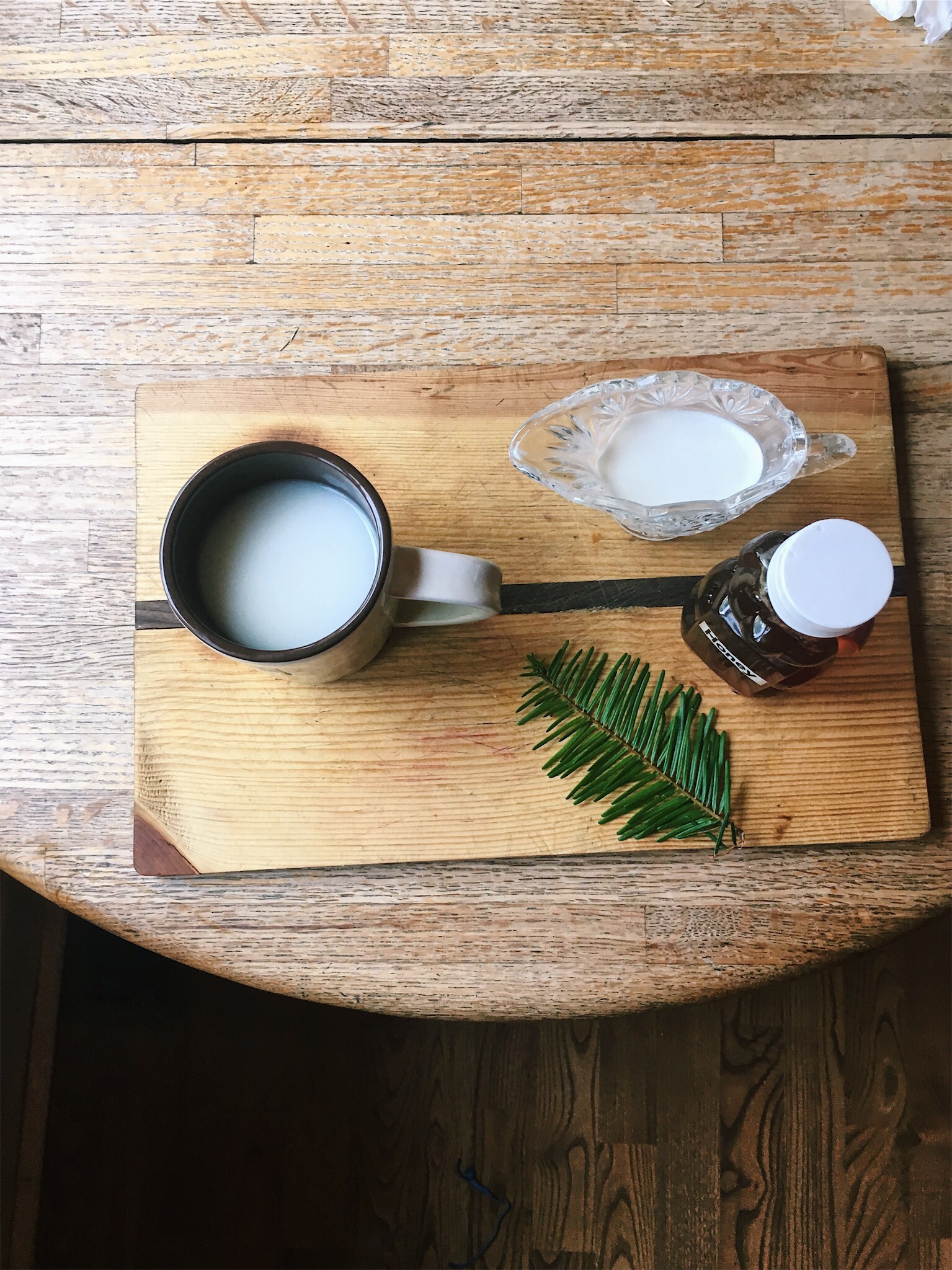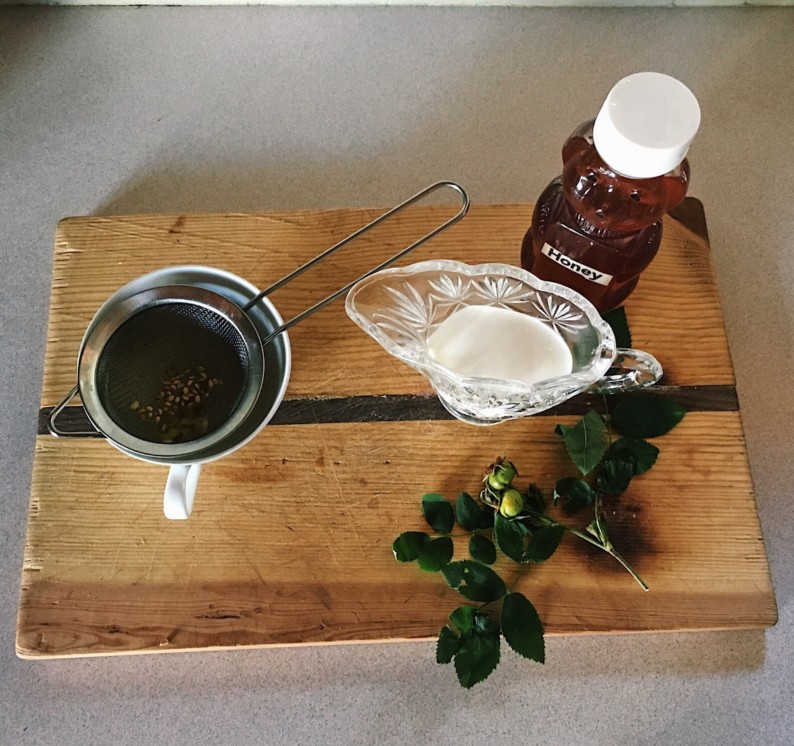Thirsty? Then try out some teas made from plants native to our local forests! You can make a native plant tea out of Douglas or Grand fir, Stinging nettle (yeah you read that right), and Nootka rose; and the process of making them is fairly easy!
While Douglas and Grand fir carry a citrus taste, you can also pair that with a Nootka rose which holds a bitter-sweet floral taste for a contrasting effect. For warmer days, try our stinging nettle and lemon iced tea. Although the Stinging nettle tea carries a spinach like taste, if you add lemons and beets (beets mostly for color), you can achieve a strong earthy taste.
To make these teas, collect, wash, and chop Douglas-fir needles, stinging nettle leaves, or Nootka rose hips (these are the seed pods on rose shrubs that are turning orange this time of year). Use gloves while foraging to protect your hands from getting pricked or stung. Add to boiling water and let steep for 5-10 minutes before straining out the plants. Add sugar to taste and enjoy hot or with ice for a refreshing summer drink!
All of these tea options not only serve as a tasty beverage but also a good source of vitamins, antioxidants and immune boosters. Read more below on the health benefits and ingredients of our native plant teas, and try to brew a batch of your own!
Fir Tea:
- 1 cup of fresh Douglas or Grand fir needles
- Cream
- Honey
Health Benefits:
Although throwing Douglas or Grand fir needles in a bath can be used to treat muscle pain, it has other advantages such as containing a decent amount of Vitamin C and A, and also helps with congestion or the flu.


Stinging Nettle Tea:
- Stinging nettle leaves (1 cup if pressed down)
- Beets
- Lemon juice
- Ice
Health Benefits:
Contrary to the common belief that these Pacific Northwest native plants are only good for attacking your bare skin, they in fact give our bodies a ton of nutrients. These green leafy plants are a superfood that contain a good source of antioxidants, as well as Vitamin A and K. You can often find these plants in pill form because it is good for allergies. What do they taste like? The simple answer is similar to spinach, but the complicated answer being go find out!
Nootka Rose Tea:
- Rose hips (preferably mature and red in color); roughly 6 rose hips for one cup of tea
- Cream
- Honey
Health Benefits:
Rose tea is a good source of Vitamin C, as well as Vitamin A and E, which are agents that help fight cancer cells. Many people use rose products, such as lotions and toners, because it helps hydrate and heal skin. This tea also smooths out your cortisol levels (the anxiety hormone), so a cup at night can help calm you down before sleep.


Please Note: Foraging in Seattle Parks is not permitted, and not all plants in our forested areas are safe to consume. Do not eat any plants unless you know it is safe to eat and you are confident you have identified it accurately. Here are some links you can use to identify the native plants listed above:
Douglas Fir: http://www.wnps.org/landscaping/herbarium/pages/pseudotsuga-menziesii.html
Grand Fir: http://www.wnps.org/landscaping/herbarium/pages/abies-grandis.html
Nootka Rose: http://www.wnps.org/landscaping/herbarium/pages/rosa-nutkana.html
Stinging Nettle: http://www.wnps.org/landscaping/herbarium/pages/urtica-dioica.html
